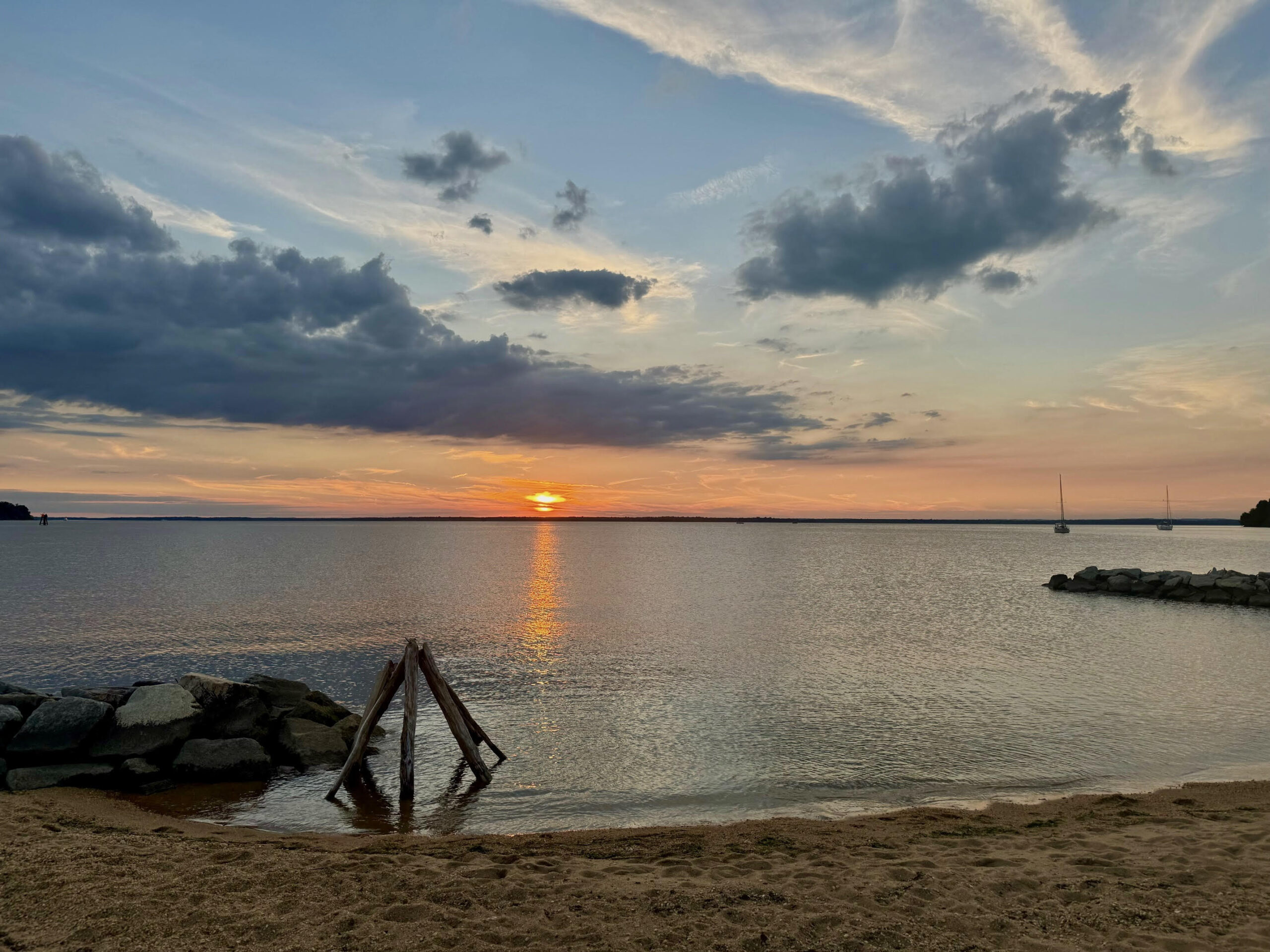 Two of our eight grandchildren—ages eleven and nine—came to visit last week. Three days together in our small house and nary a tear or a cross word. The weather couldn’t have been better; the sweltering heat was yet to come, but there was plenty of warm sunshine, good for swimming in a friend’s pool or putting on the practice green or riding bikes. The ice cream store around the corner did a brisk business thanks to us, as did one of our favorite local purveyors of steamed crabs and shrimp.
Two of our eight grandchildren—ages eleven and nine—came to visit last week. Three days together in our small house and nary a tear or a cross word. The weather couldn’t have been better; the sweltering heat was yet to come, but there was plenty of warm sunshine, good for swimming in a friend’s pool or putting on the practice green or riding bikes. The ice cream store around the corner did a brisk business thanks to us, as did one of our favorite local purveyors of steamed crabs and shrimp.
But the highlight of our time together was the day we drove out to the little beach on the Bay we call Coast Guard Beach and spent several delightful hours doing nothing. Well, not exactly nothing. We had a paddle board and a raft, beach chairs and an umbrella, books, sandwiches, drinks, and snacks. The tide was out and the shallow water was perfect for the kids. They played and we watched, that is until we decided it was time for us to join in the fun, too. Never too old to play in the water…
At some point, Gavin (our eleven year old) decided to build his own beach house. He gathered large pieces of driftwood and ingeniously stacked them together in the form of a teepee and covered the structure with a beach towel at the water’s edge. He called it his beachfront property. He spent considerable time in his beach house, surveying his watery domain.
When it was finally time to go, we packed up all our beach paraphernalia and headed back into town. (It’s only a thirty minute ride but it seems a world away.) We showered, spread out the the crabs and shrimp on the dining room table, and set to work, whacking and sawing away. Well, they did anyway. Much to my Maryland family’s chagrin, I’m not much for crabs, but I’m plenty happy peeling shrimp, sipping a cold beer while listening to the endless chatter of whatever crowd is gathered around the table.
After dinner, we decided that since it was our last night together, we would go get one last round of ice cream. The store is really just around the corner, but flip-flops are necessary for in-town journeys. And that’s when we discovered Annie’s (our nine year old) flip-flops were miss missing. We looked everywhere for them…no luck. By process of elimination, we decided that they must have been left behind on our little beach. So with about 45 minutes of daylight remaining, we all piled back in the car and headed back to our private little Bay-side paradise. We arrived a few minutes before sunset. The tide had come in, but Annie’s flip-flops were right where she left them and the little house that Gavin built was still standing, albeit now with a watery floor. Happy to have found the flip-flops and the house still upright, we savored the last, gentle remains of the day before heading back into town and the ice cream store.
I only knew one of my grandparents: my father’s mother. She was already quite old when I was born, but we would occasionally go to visit her in the same house where she had raised my father and his six older siblings. (Like me, he was the baby of his family.) I have fond memories of sitting on the floor in front of Grammy while she rubbed my neck with her strong hands. When she died—I think I was about ten—I remember seeing my father cry as he stood beside her coffin. I don’t think I ever saw him cry again.
And now I wonder what Gavin and Annie (and Jake and Boden and Blake and Reese and Andrew and Daniel) will remember about us. Maybe the beachfront property and the found flip-flops. That would alright with me.
I’ll be right back.
Jamie Kirkpatrick is a writer and photographer who lives in Chestertown. His work has appeared in the Washington Post, the Baltimore Sun, the Philadelphia Inquirer, the Pittsburgh Post-Gazette, the Washington College Alumni Magazine, and American Cowboy Magazine.
His new novel, “The Tales of Bismuth; Dispatches from Palestine, 1945-1948” explores the origins of the Arab-Israeli conflict. It is available on Amazon.



Write a Letter to the Editor on this Article
We encourage readers to offer their point of view on this article by submitting the following form. Editing is sometimes necessary and is done at the discretion of the editorial staff.